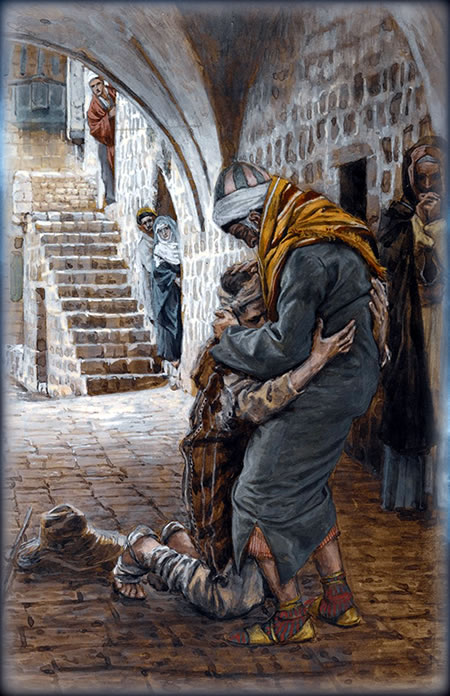
I first came to Japan 66 years ago. My appointments after language school were to remote country villages. The people at that time were still in shock after defeat in war. They were desperate, poor, and tuberculosis was prevalent. An atmosphere of discouragement was like a suffocating mist. And society, especially in country districts, was still decidedly feudal. A feudal system is where one man, or an elite group, are at the top, and the people below — as they see them! — do what they are told. The pre-war Emperor system was such.
 As a missionary from another country, I needed to tune in to the melody of my adopted people’s culture and way of thinking. Th is now has the technical word inculturation (As the Son incarnated [cf inculturation] into our human world, emptying himself, Jesus became one with us.).
As a missionary from another country, I needed to tune in to the melody of my adopted people’s culture and way of thinking. Th is now has the technical word inculturation (As the Son incarnated [cf inculturation] into our human world, emptying himself, Jesus became one with us.).
I accept the culture of Japan, and it has influenced me kindly. But there are some aspects of the prevailing way of thinking that I believe need to be challenged.
One major challenge is to influence a prevalent idea of “God.” For many “God” is a somewhat vague presence in nature. So this is a beautiful starting foundation for catechesis. We Christians believe in a personal God who created us and this beautiful world, and gave it to us to live in, and asked us to care for it.
For many others, “God” is a severe, distant, but powerful figure who punishes us when we do wrong. A very commonly used word when things go wrong is tenbatsu – literally punishment from heaven. The Good News tells us that God is love. Our God has a heart full of compassion, who understands and forgives us in our weakness and errors. Yes, our God is love.
Jesus teaches us that God is a loving Father. But here too we meet a stumbling block! Japan has been for long centuries a country where men are dominant. A father is seen so often as a distant, stern man. In an oft en quoted proverb in Japan there are four things to fear in life: earthquakes, thunder, fi re and fathers. Th is residual fear of a severe father is oft en concretized in our modern Japan, by the trauma of the myriad single mothers and their children. So oft en we meet these deserted ones who come to the church seeking encouragement, strength and a meaning to life. So to present our God as Father is definitely a major challenge!
Th is is where the power of the scriptures starts to work! I present chapter 15 of St. Luke’s Gospel to the class preparing for Baptism. Here we meet the three parables of God’s compassion – the lost sheep, the lost valuable coin and the lost son. Yes in this latter parable the second son rejects and insults his father. Then he lives a dissolute, prodigal life, followed by a complete collapse of fortune and a decision to return home asking to be a mere servant. But then in the second act of the parable we meet the most important character of this parableplay. The son’s father understands his son’s weakness, goes to his door each day gazing down the distant road hoping to see sight of a returning son. When he does see him, he rushes out to meet him. Rushing out is so atypical for a father of the East! Th is father gives his son a big hug, and says, “Welcome home, my son.”
Jesus tells us that the true God is just such a loving Father!
Columban Fr. Barry Cairns lives and works in Japan.